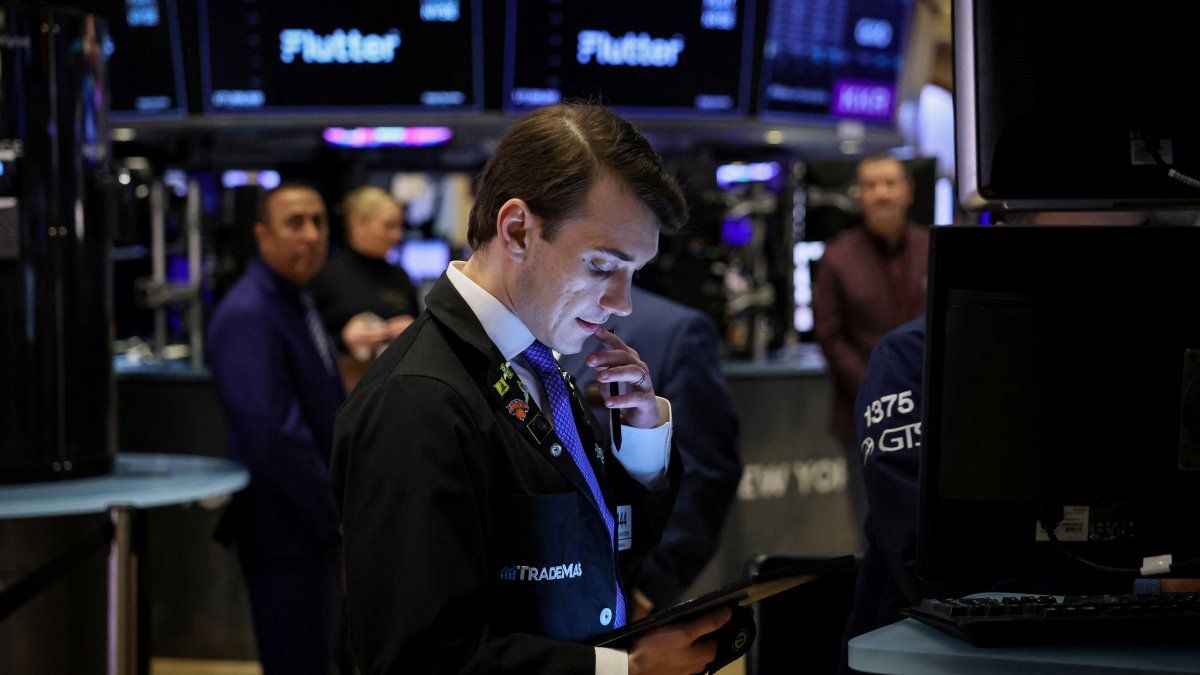He international market had a strong shock this Monday after worsening political tension due to the situation in the Middle East. Thus, this day it was evident that the Iran attack on Israel It had an impact on the financial level. In that framework the fear index, VIXit shot up values not seen since October of last year.
It should be noted that Iran launched an offensive on Saturday following an alleged Israeli attack on its embassy in Syria on April 1, in which senior members of the Revolutionary Guard died. However, the attack of the Islamic Republic, launched with more than 300 missiles and drones, caused only modest damage in the Jewish State.
In that framework, US stocks closed sharply lower on Monday. Concern about the growing geopolitical tensions between Iran and Israel was also added the strong rebound in retail sales that led to a rise in Treasury yields.
In fact, the S&P 500 posted its biggest one-day percentage drop since January 31 in the previous session. Thus, the Dow Jones fell 250.63 points, or 0.7%, to 37,735.24; the S&P 500 lost 1.2%, to 5,061.62 units; and the Nasdaq Composite fell 1.8%, to 15,885.17 units.
The VIX, called the “fear index,” tends to rise when investors are worried or fearful that the market may experience sudden movements or significant falls. In general, high implied volatility, reflected in the VIX, is associated with an increase in investors’ perception of risk.
The VIX rose 11% this day but in the last two days it shot up nearly 30%.
markets stocks live finance investments
Depositphotos
Tension in the Middle East: how it can affect Wall Street
“I think this fall is more than anything an excuse that the market has for taking profitsI do not imagine that it is, as some propose, the principle of The third world war; It seems to me that it is not in anyone’s interest and the parties are not willing,” he told Ambit, Alejandro Bianchifounder of InvestmentAdvisor.com.
For its part, The United States affirmed that it wants to prevent the conflict from spreading in the Middle East and warned that it will not participate in an operation against Iran. Other allied countries such as France and the United Kingdom, which helped intercept the attack, also distanced themselves.
“A priori, it seems that it was a very controlled attack from Iran and? Israel should stay calmfrom the politically correct point of view, but you never know how their Prime Minister, Benjamin Netanyahu, who may want to respond, is going to react,” he said. Rafael di Giorno of Profession.
And he completed his analysis of the day: “Wall Street had started up but then fell; 10-year rates rose to 4.6% and emerging markets had a very bad day. The hardest hit was equitynot the bonuses. The S&P 500 was very firm despite the delays in rate cuts and now “There is less and less sight of a rate cut for this year.”
As for what could happen in the coming days, Ignacio Sniechowski, Head of Research at IEB Grouppredicted: “With the macro data that is coming out, there is more potential for crude oil to rise.” “The outlook is one of high rates for longer, which will continue to put pressure on equities.”
Source: Ambito
I am a 24-year-old writer and journalist who has been working in the news industry for the past two years. I write primarily about market news, so if you’re looking for insights into what’s going on in the stock market or economic indicators, you’ve come to the right place. I also dabble in writing articles on lifestyle trends and pop culture news.




